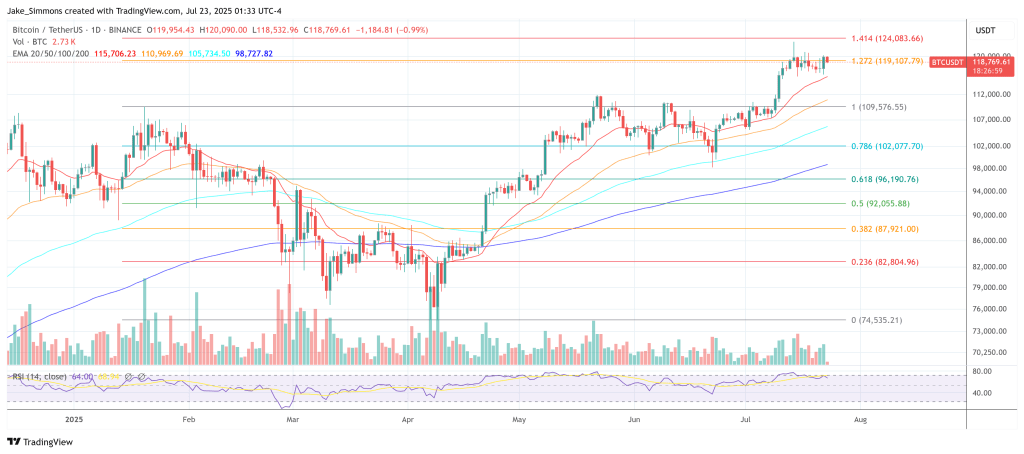BREAKING: SEC Greenlights In-Kind Bitcoin & Ethereum ETFs – Crypto Markets Braced for Shockwaves
The SEC just dropped a bombshell that'll send shockwaves through crypto markets—in-kind ETF approvals for Bitcoin and Ethereum are finally happening. Wall Street's about to get a taste of decentralized finance, whether they like it or not.
Here's why this changes everything:
• No more cash-only settlements—investors get actual crypto in their accounts
• Institutional floodgates swing wide open for BTC and ETH
• The ultimate regulatory stamp of approval (with extra paperwork, naturally)
Critics warn this could centralize crypto through backdoor custody arrangements—because nothing says 'decentralization' like letting BlackRock hold your keys. Meanwhile, crypto natives are already placing bets on which trad-fi giant will fumble their cold storage setup first.
One thing's certain: the SEC just handed crypto its biggest legitimacy win since the Bitcoin futures launch. Now we wait to see if the market pumps... or if this turns out to be another 'buy the rumor, sell the news' moment for the history books.
Why In-Kind Matters For Bitcoin And Ether ETFs
Under the cash model imposed when spot Bitcoin ETPs were finally approved on 10 January 2024, an AP delivers dollars to the fund, which then buys the cryptocurrency in the spot market; redemptions reverse the process. That design solved SEC concerns under Chair Gensler about custody and settlement risk but introduced two frictions: the trust itself must trade in the underlying market, and the resulting order flow can push net asset value away from share price when spot liquidity is thin.
In‑kind processing hands those trades back to authorised participants. When creating shares the AP ships Bitcoin or Ether directly to the fund’s cold‑wallet; when redeeming it receives coins instead of cash. The structure is standard in the broader ETF ecosystem and is associated with tighter spreads, smaller primary‑market imbalances and material tax advantages because portfolio securities — or in this case, crypto‑assets — are released “in kind” rather than being sold and realising capital gains inside the fund. The SEC itself notes that ETFs “can be more tax efficient… because ETF shares generally are redeemable ‘in‑kind’.
Commodity trusts already employing in‑kind redemptions provide the regulatory template the crypto issuers are invoking. SPDR Gold Shares, for example, lets an authorised participant exchange a 100,000‑share basket for physical bullion, a feature that ultimately allows an individual investor to “take physical possession of the gold backing his or her shares,” albeit through a broker‑facilitated arrangement. By mirroring that language, the bitcoin and Ether trusts argue they are simply seeking parity with existing commodity ETPs.
Operational pressure has also mounted as primary‑market volumes grow. Since launch the eleven spot Bitcoin ETFs approved in 2024 have drawn nearly $55 billion in cumulative net inflows; market‑making desks face the hurdle of sourcing billions of dollars at 4 p.m. every settlement day — then unwinding the crypto exposure after the trust purchases coins. This ties up the balance sheet and widens spreads during volatile sessions. Allowing in‑kind hand‑offs lets desks source or hedge Bitcoin and Ether continuously and deliver the assets straight into the trust’s wallet at T + 0.
At press time, BTC traded at $118,769.


